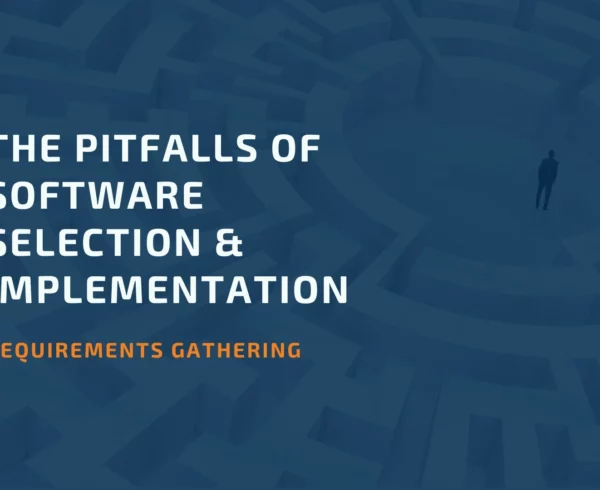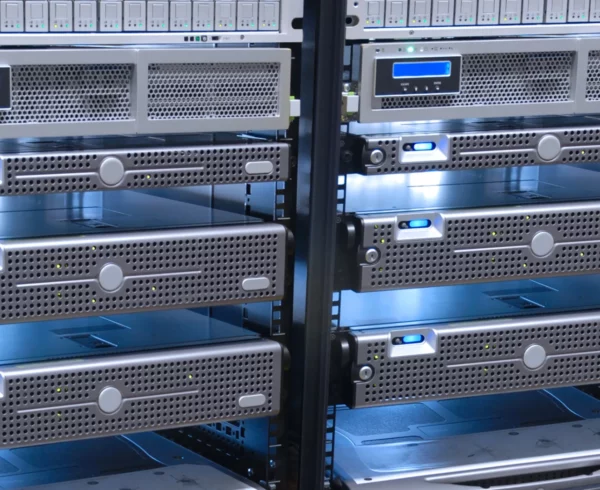 How Does an ERP Improve Business Operations?
How Does an ERP Improve Business Operations?
Enterprise Resource Planning (ERP) is business management software that enables an organization to leverage integrated applications. ERP systems streamline and automate processes, creating a leaner, more accurate and more efficient operation. In addition, ERP provides complete visibility into core business processes.
How does an ERP system work?
An ERP system is developed to increase organizational competency through better management and improvement of company resource utilization. It is also compatible with various hardware and network configurations. Therefore, you can set up the best ERP system match for your business type to integrate into your sales infrastructure, e-commerce system, management app, and other applications. This gives your company direct and robust optimization and proficiency, eventually leading to growing your business as needed.
How ERP Software Enhancing your Business
The right ERP solution for your organization will allow you to evaluate better and process your business data. At the same time, ERP systems provide other benefits such as:
1. Improved Efficiency
ERP systems simplify different manual business processes. For example, repetitive tasks like tracking inventory, monitoring working hours, assigning tasks to employees, generating financial reports, and distributing salaries automatically.
By automating complicated processes rather than bugging each other, your staff can focus more on their core deliverables. For example, your accounting team can produce sales reports without depending on sales managers, and the marketing team can create daily web traffic data reports without bothering the IT department.
A significant advantage of ERP systems is that they give company managers and stakeholders fast access to data, allowing decision-makers to monitor key performance indicators throughout the company via the dashboard. ERPs can generate all necessary data in real-time.
2. Better Visibility and Collaboration
With siloed applications, your employees must enter data into separate applications across departments or move data back and forth between the systems. However, with an ERP, all the data from the various modules are in the same system. This means that data only needs to be entered once and then shared with all business sections, dramatically reducing time wasted on data entry and improving accuracy and reducing errors. It is also easier for your employees to learn one application rather than figure their way around many systems.
The company will function more efficiently due to a standardized data system that provides visibility across departments. ERP systems help decrease operating costs by increasing organizational efficiency. The practical flow of data helps management respond faster to new opportunities or handle minor problems before they become more significant.

3. Digital Transformation
If you are digitizing your business, an ERP system is a tool that has a significant role in being customer-friendly, helping with decision-making, reducing costs, and facilitating a competitive edge.
4. Improved Customer Service
Most ERP software today includes CRM features that help to automate customer service tasks. The software can track transactions, service requests, orders, complaints, and more. The real value is the customer analytics that is now easily obtained, which helps with target marketing and increases customer acquisition and retention. End-to-end tracking empowers companies to provide better service to their customers.

5. Improved Data Security
ERP solutions prevent data breaches with firewalls and restriction controls. Because all the data is concentrated in one place, the system can easily monitor the access points. Also, administrators responsible for managing company data can provide limited access rights to employees. For example, HR managers can hide crucial data for themselves and stakeholders while allowing employees to view their financial data.
Admins can also deactivate laid-off employees’ access and grant new employees access quickly. In addition, due to ERP solutions being able to show user activities, the admins can quickly identify unauthorized actions or suspicious activity patterns in the system and respond appropriately.
6. Reducing Operation Costs
Using real-time information enables an ERP system to reduce operational costs. In addition, manufacturers can manage operations and prevent setbacks, allowing the owners to make intelligent decisions while eliminating additional and unnecessary expenses.
Conclusion
An ERP system will ultimately become the workhorse of your business by connecting your entire organization, enabling you to improve your business operations and become more efficient.
At BHC group, we know how essential an ERP system is to grow a successful business. Our vast experience across multiple sectors, from finance to manufacturing, enables us to solve any of your unique problems with our unique solutions.
Contact us today to find out how we can support your business in reaching its goals.





